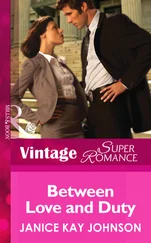They were on the way to the hospital to talk to a woman whose husband had beaten the crap out of her the night before. Or so said the neighbors who had called 911 after hearing an escalating fight, crashes and screams. The woman hadn’t been able to say anything; she’d lain unconscious on the floor, her face blood-smeared and distorted.
Ann and Diaz didn’t do the average domestic disturbance call anymore. This one wasn’t average. Gene Verger’s first wife had been viciously beaten to death. Police had never been able to prove he had killed her. He’d claimed he’d found her when he got home from work.
When a 911 call with his address came in, it was like little red cherries all lining up. People who’d seen Marianne Verger’s body had long memories.
His second wife looked grotesque. One eye was swollen shut; the other peered through a slit in purple flesh. One arm was in a cast, and the print of fingers was visible on her neck.
Ann took the lead. “Ms. Verger?”
The woman in the hospital bed gave the tiniest of nods, then winced. At least, Ann thought she had. With her face looking like a raw ribeye roast, reading expressions was a little difficult.
“We’re hoping you can give us a statement about last night.” Ann pulled up a chair.
Diaz stood near the foot of the bed, his notebook out. When the situation called for it, he was good at presenting himself as bland. Next best thing to invisible. This was one of those times.
Rochelle Verger studied him with what Ann took for suspicion, then turned her head on the pillow to scrutinize Ann.
“You’re not wearing uniforms,” she whispered, voice as damaged as her face and throat.
“No. I’m Detective Caldwell and this is my partner, Detective Diaz.” Ann showed her badge.
She struggled to swallow before asking, in that hoarse whisper, “Why you?”
Ann chose honesty. “Because of your husband’s history.”
The woman didn’t move for a long time. Finally, a tear seeped from her open eye.
“He’s been arrested,” Ann assured her. “He’s behind bars.”
“He… I fell. I always say I fell.” More tears dribbled down her cheek even as her eye closed.
Ann touched Rochelle’s lax hand. “He almost killed you.”
She cried, her mouth opening as tears ran into it. Her hand turned in Ann’s and clutched it in a painful, clawlike grip.
Never comfortable with emotional displays, Ann cleared her throat. “Hey. You’re safe now. He won’t get near you again.” When that had no effect, she repeated, “You’re safe. It’s okay.” Letting her hand be mauled, she kept murmuring the same things over and over. As if that would do any good.
At length the battered woman’s grip loosened and the agonized contortion of her face relaxed. Ann reached for a tissue and said, “Um, do you want to blow your nose?”
The one eye peered at her again. The mouth twisted into what might have been a laugh. Rochelle Verger nodded and took the tissue.
She dabbed rather than blew, and even that must have been painful.
At last, in an exhausted, hoarse whisper, she said, “He killed her. He tells me he did every time he beats me. He says I’m lucky.”
“Will you testify in court?”
The single eye fastened with heartrending intensity on Ann. “Do you promise he won’t get off? That I’ll be safe?”
At the foot of the bed, Diaz stirred.
Ann wanted, very badly, to promise anything. She wanted to twist Gene Verger’s nuts until he screamed.
But that swollen, discolored face, tracked with tears, the desperate strength of the fingers that had probably bruised Ann’s hand, stopped her.
“You know I can’t promise. He should get several years for what he did to you. Whether he’s convicted for murder depends partly on what he’s told you.”
The young woman who looked and sounded old started to whisper. Ann had to lean close to hear.
“He liked to talk about it. He liked to scare me. He told me everything.”
Ann smiled at her. “Then you have the power to put him away for a lifetime. If you choose to use it.”
The mouth twisted again, and this time Ann knew it was into an answering smile. In that raw whisper, she said, “I choose.”
ANN HESITATED outside the bistro, then squared her shoulders and walked in. She bolstered herself with the thought that at least her eyebrows looked great.
“Ann!” Eva Pearce waved from a round table by the window. “Over here.”
The hostess who had been about to waylay Ann smiled and gestured her ahead. Conscious of her plain navy slacks and blazer and solid, practical shoes in a way she wasn’t usually, Ann crossed the small dining room, passing several tables of women who all seemed to have Eva Pearce’s natural style.
“Thank you for coming.” Eva smiled. “Gosh, I’ve been looking forward to this. We should have gotten together to commiserate years ago.”
Some of the tension left Ann’s shoulders. “You mean, to bitch?”
The blonde laughed. “Why didn’t we? I so hated my father when I was about sixteen.”
“I thought I loved mine then.” The surprising admission just came out. Ann’s mouth almost dropped open at the implication: that later, she hadn’t loved him.
Or, at least, that she didn’t want to love him.
Eva didn’t seem surprised. “I had my phases, too. We never want to give up, do we?”
“I didn’t want to even after Dad died,” Ann admitted. “Isn’t that pathetic?”
Eva blinked. “Okay, you have to explain that one.”
Over glasses of wine and salads, Ann told her about the investigation that had been her father’s obsession and which she’d taken over after his death. “I told myself I owed it to him. But really, I kept imagining myself standing at his grave telling him I’d arrested the son of a bitch.” She shook her head. “As if…I don’t know.”
“You’d feel a ghostly pat on your back?”
Ann made a face. “Or some all-enveloping wave of pride. Heck, maybe a disembodied voice saying, ‘You done good, girl.’”
Eva’s laugh wasn’t the expected ladylike tinkle. Instead, it was hearty and uninhibited. “Hey, you never know! Maybe death softened the old bastards up.”
Ann snorted. “What are the odds of that?”
The other woman became pensive. “Do you ever wonder which direction they went?”
It was Ann’s turn to give a startled laugh. “I actually hadn’t thought about it. I haven’t really gotten used to Dad being gone. I still have the sense he’s looking over my shoulder.”
“Why?” Eva shook her head. “Let me rephrase. What I mean is, do you feel like he’d want to linger? Are we really talking woo-woo here? Or do you have a hang-up?”
Ann heaved a sigh. “I have a hang-up.” She had a sudden absurd image of herself standing up in front of a roomful of sympathetic strangers. My name is Ann Caldwell and I have a problem.
A dainty manicured hand with coral nails patted Ann’s. “Tell Sister Eva all.”
“This is supposed to be mutual,” Ann protested.
“Oh, it will be. Believe me, I have hang-ups, too. But you first. You’re more interesting.”
Oh, yeah. That was her, Ann thought. Fascinating. Riveting.
“I seriously doubt it.” She took a bite while she debated how much she really did want to confide in another woman. Sure, she’d casually known Eva since they were in kindergarten. But they’d never had a thing in common except their fathers, and they didn’t now.
Too, she was only starting to understand what she’d felt for her father. Some people seemed to need to babble about their every passing twinge of guilt, lust, resentment or smugness. Ann had never had anybody to talk emotions out with. She knew, on some level, that she had to do some of that if she was going to have friends. But theoretical knowledge wasn’t the same thing as breaking down in real life and pouring out her heart to someone she hadn’t exchanged more than greetings with since they were in fifth grade.
Читать дальше












